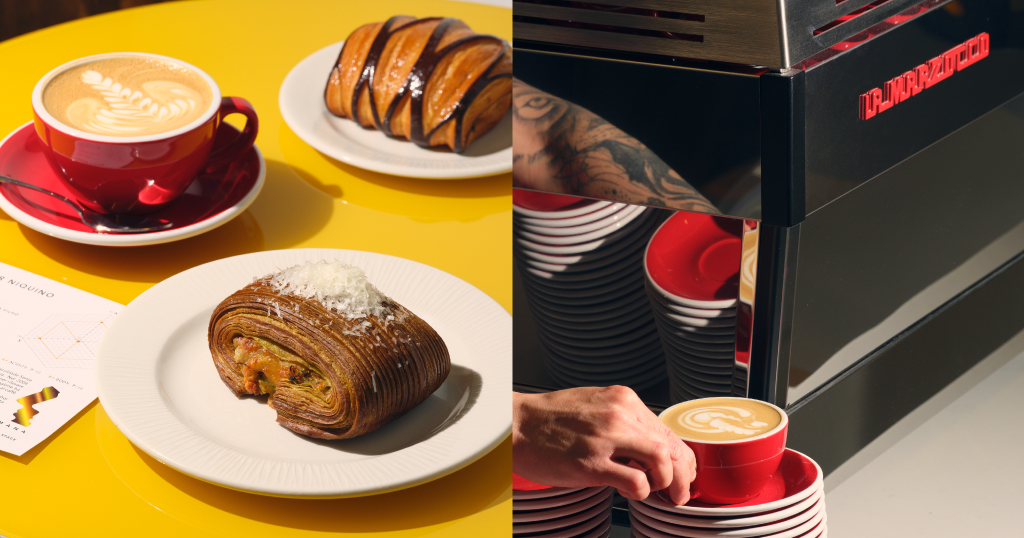Italy has long been a bastion of traditional coffee culture. Thanks to the advent of the espresso machine in the 1880s, many Italians have held firm to the belief that coffee should be affordable, quick, and roasted dark.
Although Italy is the second-largest consumer of coffee in Europe, its deeply ingrained mindset about coffee has stalled the growth of the country’s specialty coffee market. Traditional coffeehouses have long outnumbered specialty coffee shops and roasters, and historic regulations have kept espresso prices unrealistically low.
Record arabica futures over the last year, however, are forcing Italians to reexamine their preconceptions of coffee – and specialty coffee is at the forefront of this cultural shift.
I spoke with Dario Fociani, Dafne Spadavecchia, and Zach Romanow at Faro, Aliena Coffee Roasters, and Luna by Faro in Rome to learn how they are challenging the status quo in the Italian coffee market.
You may also like our article on why espresso is so popular in Italy.
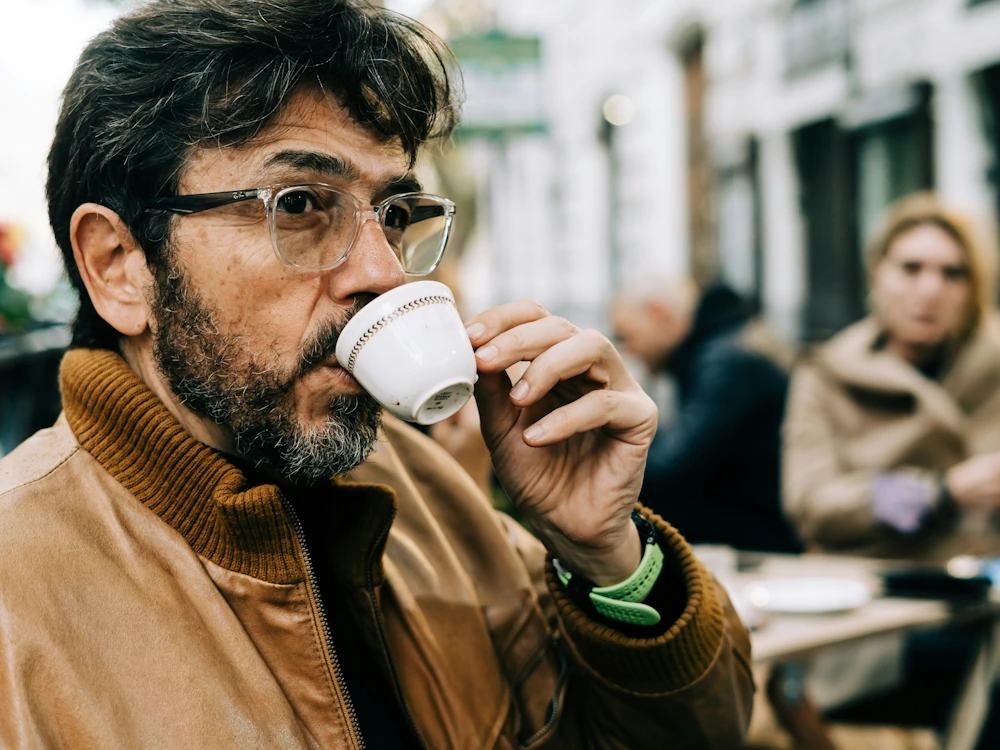
Why tradition holds its roots in Italian coffee culture
Coffee has been a quintessential part of Italian culture since the invention of the espresso machine. Italy’s Ministry of Agricultural, Food, and Forestry Policies has even submitted several UNESCO applications to preserve espresso’s Italian roots – although none have so far been successful.
The country drinks around 14 billion espressos every year, reaffirming the long-standing tradition of drinking fast, cheap coffee quickly, often while standing at the bar in a traditional coffeehouse.
To compensate for the higher consumption of short, small drinks like espresso, many Italians prefer bold, intense, and bitter dark-roasted coffee. While some may assert it’s a mere taste preference, Italy’s penchant for traditional espresso has limited the maturation of its coffee market.
“For over fifty years, many old-school roasteries have spread misinformation, shaping a narrow idea of quality based on intensity, bitterness, and routine,” says Dario Fociani, the co-founder of Faro, Rome’s first-ever specialty coffee shop, which was recently voted the 26th best coffee shop in the world.
“Most Italians judge coffee not by its taste, but by how it makes them feel – strong, fast, familiar. It’s a cultural reflex, almost subconscious,” he adds.
The darker the roast profile, the easier it is to mask defects and low-quality beans, too. When roasters and coffeehouses feel incentivised to buy low-quality and cheap green coffee, it’s inherently at the expense of sustainability.
“Italy’s coffee culture began – and stagnated – with a dangerous mindset that undervalues espresso as merely transactional instead of a delicacy,” says Dafne Spadavecchia, the co-founder and general manager of Faro and Aliena Coffee Roasters, a specialty coffee roastery opened by Faro in 2021.
“Our habits as Romans are very strong and deep-rooted,” she adds. “The Italian coffee sector is quite resistant to critique and change.”
Simultaneously, many Italians conflate specialty coffee with unreasonably high prices.
In the 1910s, Italian authorities enforced a maximum price for certain “necessities”, including coffee, reinforcing widely held beliefs that coffee should be cheap.
Today, many consumers, business owners, and baristas alike resist the rising cost of their typical €1 espresso, thereby allowing some café and roastery operators to continue sourcing low-quality, robusta-heavy dark roast blends.
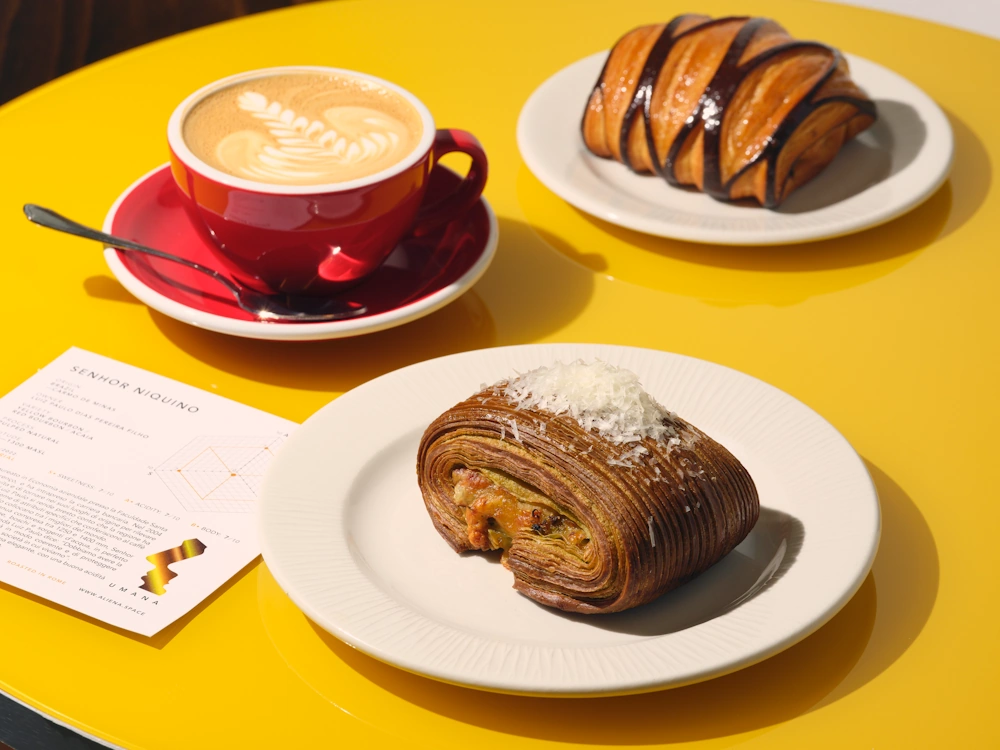
Specialty coffee is defying the norms in Italy
Coffee is undeniably central to Italian culture; yet, the long-standing tradition of fast, inexpensive espresso is slowly fading as specialty coffee begins to gain traction.
Virtually zero specialty coffee brands existed in Italy a decade ago; now, there are more than 100. One of the first to open in 2016, Faro has since spearheaded the steady growth of Italy’s specialty coffee scene.
“The Italian coffee market is very late to the specialty trend, and entrepreneurs have been slow to enter because they believe Italy is a very traditional market that will be difficult to break into,” says Zach Romanow, a partner at Luna by Faro, a new multi-functional specialty café and restaurant opened in April 2025, that emphasises a focus on the five senses to enhance appreciation of high-quality food and drink.
“But the fact that it’s not easy also means there’s a lot of room for a newcomer to stand apart and offer a level of quality that really surprises people, and this is what the team at Faro and Luna has done so well,” he adds.
Offering light and medium roast profiles that highlight acidity, sweetness, and complex flavour notes, rather than bitterness and “roastiness”, specialty coffee is challenging traditional flavour palettes and reshaping the consumer mindset about coffee quality and pricing.
“We didn’t just want to serve different coffee – we wanted to change the conversation,” Dario says. “By revealing that coffee can be clean, aromatic, and deeply expressive of its origin, it shifts the focus from habit to curiosity.”
Traditional Italian coffee culture continues to cater to a quick stint standing at the bar and sipping espresso with little attention paid towards its origin, processing, or unique attributes.
By initiating conversations about transparent sourcing and quality, coffee shops like Faro and Luna by Faro have become a point of reference for Italians seeking a deeper understanding of their daily espresso.
“Specialty coffee invites people to question what they think they know,” Dario says. “It brings traceability, terroir, and craftsmanship into a world that has long been standardised and industrialised.”
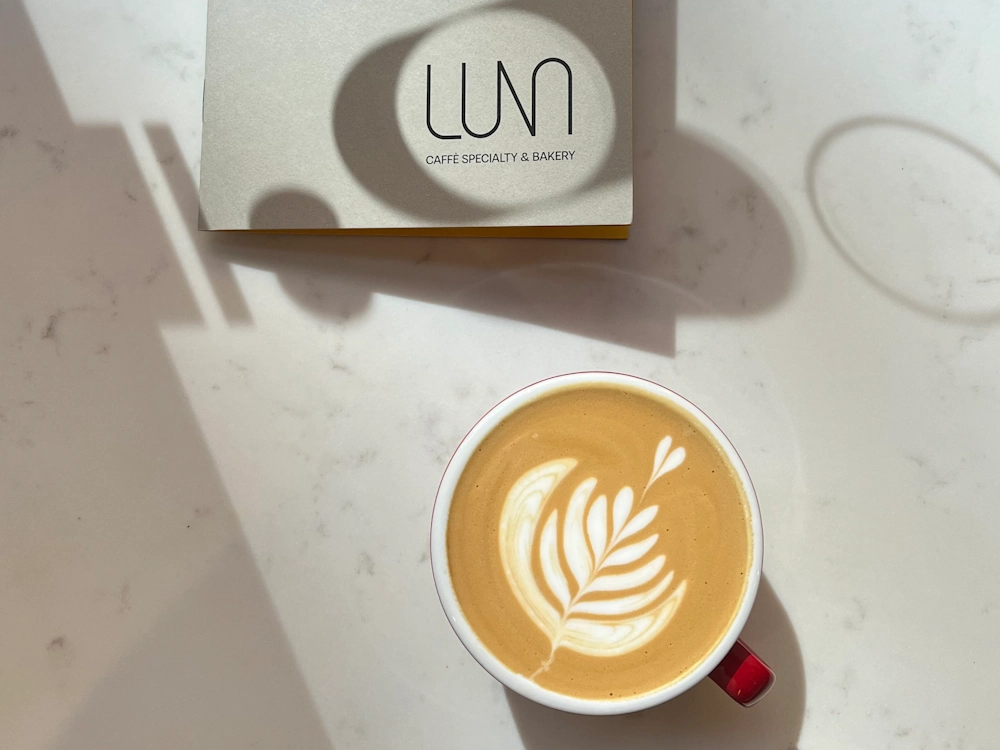
Challenging an “old school” mindset
Despite the Roman specialty coffee scene taking off, espresso culture is progressing faster in the north of Italy than in the south. Shifting such long-standing practices nationwide will surely require patience.
Although many Italian industries produce luxury goods and Italian consumers are often willing to pay more for higher-quality products, this mindset doesn’t usually extend to coffee.
“Instead, many people see coffee as ‘just’ coffee,” Dafne explains.
Teaching consumers that specialty coffee is a luxury good is the first and highest hurdle, given the country’s traditional café culture. This has become an even more pertinent conversation as coffee prices continue to remain high and volatile, forcing many Italian coffee consumers to reconsider their perceptions of how much an espresso “should” cost.
“It’s often necessary to educate customers about what a quality cup of coffee means and why it needs to cost more than €1,” Zach says.
The onus, therefore, falls on the Italian coffee industry as a whole to normalise higher prices.
“The hardest challenge is to substitute and replace the word ‘high’ with’ fair,’” Dafne says. “If a product has been underpriced for over ten years, you can’t blame the consumer.”
Critically, the industry must work towards elevating the underappreciated and undervalued profession of the barista in Italy. Not only can they demonstrate the level of craft within the entire speciality coffee value chain, but they also frequently act as a bridge between the two ends of the supply chain, thereby deepening consumers’ understanding of coffee production and, consequently, quality.
The importance of small coffee brands – traditional and specialty alike – collaborating in these educational efforts cannot be overstated. Rising menu prices pose a greater risk to independent cafés, which are up against large chains with greater capacity to absorb costs.
However, specialty coffee businesses like Faro, Aliena, and Luna are in a uniquely position to reframe higher menu prices as an opportunity to raise their standards for service and products.
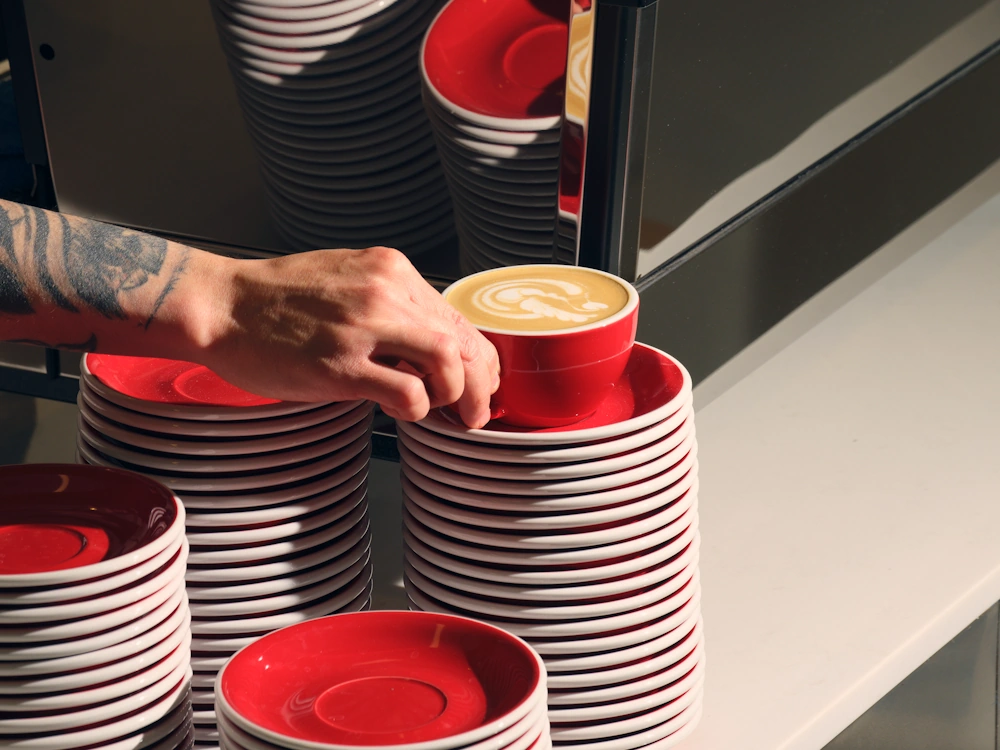
Rising coffee prices have opened up learning opportunities
Because Italians perceive espresso price hikes as more drastic than in other markets, they are more urgently motivated to learn why it’s happening.
“By supporting curiosity and creating further awareness, we can encourage more people to drink better quality coffee,” Dafne says.
Not only does specialty coffee broaden awareness of quality and flavour, but also of social and environmental factors affecting the coffee industry, from the impacts of C market volatility and climate change on coffee farmers to the opportunities to build transparent and long-term relationships across the value chain.
“Italians already recognise good agriculture when it comes to fruits, vegetables, olive oil, flour, cheese, or ethically-raised meat,” Dafne says. “Our mission is to help them see coffee the same way: as a tropical fruit, not a packaged commodity.”
Faro opened Luna to support this movement, showcasing how fine dining and specialty coffee are complementary. The new café integrates specialty coffee with exceptional food, artisanal baking, natural wine, and curated art to create an elevated level of hospitality that draws inspiration from the Slow Food philosophy.
“Luna offers a deeper, more immersive sensory experience – one where you can engage all five senses, and where people open not just to flavour, but to a deeper connection to their food and drink,” Dario says. “With more seating and no service counter, it distances itself from the traditional fast-paced bar model, bringing us closer to our ideal of what a coffee space can be.
“It’s not just about coffee or food – it’s about memory, emotion, and perception.”
Despite Italy’s resistance to specialty coffee, companies like Faro, Luna, and Aliena are proving that the country’s coffee drinkers have an open mind to elevated experiences.
“People have underestimated how open the Italian market is to appreciating the quality of ingredients, the craft of a highly trained barista, and all the little details that go into making truly great coffee,” Zach says.
While coffee consumers are gaining an appreciation for more complex and delicate flavour profiles, the negative attitude towards expensive coffee remains uncompromising. The gap between perceived and actual value persists, as Italian consumers have a long way to go in understanding that ethical sourcing and fair wages come with associated costs.
Critically, specialty coffee culture can’t be framed as intimidating or exclusive.
“We educate with gentleness,” Dario says. “From how we describe tasting notes to how we explain brewing methods, everything is meant to spark curiosity. Our team is trained to listen first, not to preach.
“The challenge is to build trust and culture slowly, with consistency and integrity,” he adds. “Operators need to stay committed to quality and education, while remaining open, patient, and kind.”
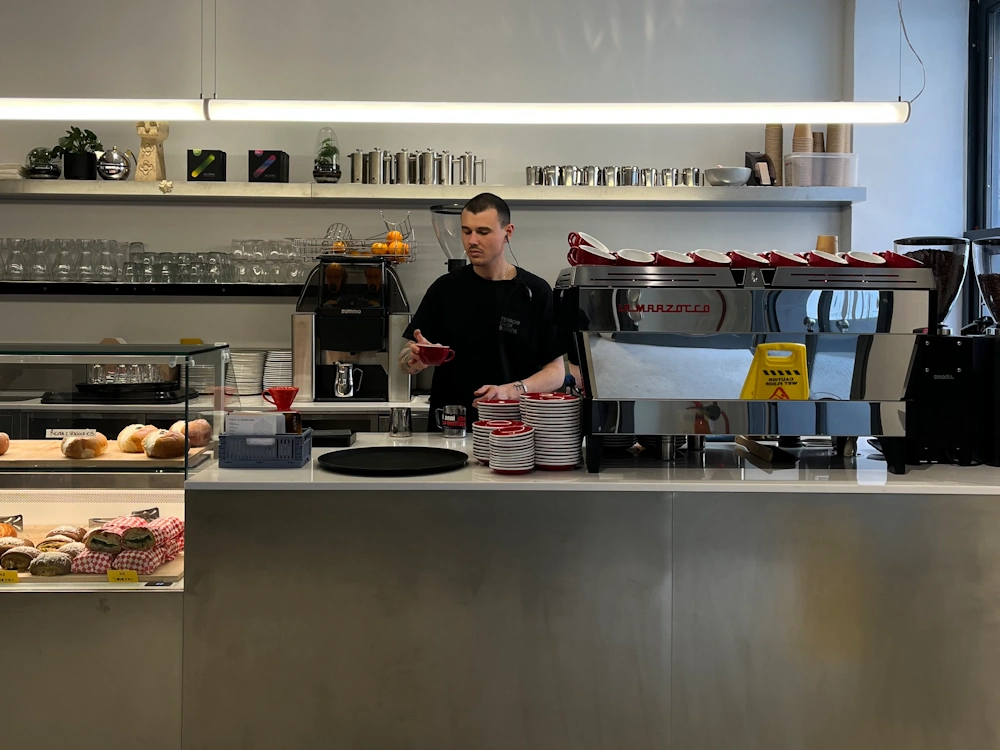
Italy’s coffee culture finds itself at a crossroads. The country’s traditional mindset about espresso is likely to prevail, but specialty coffee is reshaping the future of the Italian market.
“Specialty coffee shops aren’t here to replace the old world – we’re here to build a new one,” Dario concludes. “One made of gentleness, sensory awareness, and a renewed connection with the land and those who cultivate it.”
Enjoyed this? Then read our article on the history of the espresso machine.
Photo credits: Faro
Perfect Daily Grind
Please note: Faro is a sponsor of Perfect Daily Grind.
Want to read more articles like this? Sign up for our newsletter!

